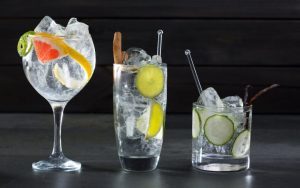Does Sparkling Water Cause Teeth to Lose Lustre?
 With water making up 60% of the average human body and 73% of the brain, there’s no better choice than plain water when it’s time to rehydrate.
With water making up 60% of the average human body and 73% of the brain, there’s no better choice than plain water when it’s time to rehydrate.
Doctors and nutrition experts agree on plain water as the safest and healthiest choice. After all, water is calorie-free, caffeine-free, sugar-free, and should be free of most additives.
And as a rule of thumb, we are told to drink at least two litres of water a day. But staying hydrated can be difficult, and sometimes water can be plain, even dull.
To spice things up, some people choose to augment their everyday water consumption with sparkling water. If regular water is boring, why not just add a bit of fizziness to spice it up?
However, there has been some recent media coverage suggesting that sparkling water may pose a threat to your teeth.
At Main Beach Dental, our single focus is on protecting your dental health, so we’d like to share with you our information on sparkling water, it’s safety, and how it compares to other drinks.
What might be the problem with carbonated water?
The potential problem with carbonated or sparkling water is that it might erode tooth enamel, the hard, outer surface of the teeth that protects the softer inside. This threat comes from carbonic acid — a result of carbon dioxide being pressurised into sparkling water. Studies have suggested that carbonic acid can have a mild corrosive effect on your teeth over an extended period.
If you’re interested in the science of this, here’s the chemical reaction: H2O(l) + CO2(g) ⇌ H2CO3. We know, very complicated!
To understand why this might be trouble, it is important to understand the pH scale, which measures acidity levels. Your mouth is at a pH of about 7.4, so that is the naturally healthiest pH for your teeth. The lower a pH number, the more acidic a drink is. Pure water has a pH level of 7. Bottled water — even some of the ‘flat’ variety — has a pH level between 5-7; while sodas can hit as low as 2. The pH level of sparkling water is generally between 3 and 4, which is a bit less than ideal. And when pH levels get to low, tooth enamel can erode.
But how dangerous is that chemical reaction?
The good news is that the chemical reaction described above seems to pose very little threat to your teeth. Let’s take a look at the science on both sides of the argument.
A study in the International Journal of Paediatric Dentistry from the University of Birmingham discovered that flavoured sparkling waters could have corrosive effects on teeth similar to orange juice (which is known to erode enamel). Grapefruit, lemon, and lime were the most erosive flavours as they add citric acid to the existing acid in the water. Importantly, it is the added flavours that seem to be the most dangerous. This problem, of course, can be avoided by skipping flavoured sparkling waters.
More reassuringly, a study in the Journal of Oral Rehabilitation showed that plain mineral water and most flavourless sparkling water do very little to damage teeth.
So what the studies conclude is that there is a small chance that sparkling water can harm your teeth, but even in the worst case, the damage is likely to be slight. It is worth noting that in most of the studies, teeth were submerged in sparkling water for extremely long periods of time that would not occur in real life.
Sparkling water would need to be consumed over an extended time and not leave the mouth for a very long time to have any real adverse effect.
In case you’re still worried, however, we have some suggestions!
Safe drinking for carbonated beverages
- Drink with a meal. Save sparkling water for meals. Chewing increases the production of saliva, which neutralises the effect of acid on tooth enamel.
- Drinking sparkling water with a straw. Consuming carbonated beverages through a straw minimises contact between carbonic acid and enamel.
- Drink it plain. Flavoured sparkling water often has potentially dangerous added sugars and adding a wedge of fresh lemon or lime increases acidity, which can increase the potential for erosion.
- Follow it with water. Drinking regular water after drinking sparkling water rinses the teeth.
- Wait 30-40 minutes before brushing. Right after drinking a carbonated drink, the tooth surface is slightly weakened. So wait to brush.
Dental Care at Main Beach Dental
At Main Beach Dental, your dental health is our number one priority. We are composed of highly trained registered dentists with impressive clinical skills who work together to provide you with comprehensive dental services.
We provide gentle, skilled care for all dental conditions and work with you to prevent disease, decay, and too many dental appointments in the future. Our commitment to our patients is dental health for a lifetime!
FREE DENTAL CONSULTATION
- Dental Check-up
- Smile Makeover
- Dental Implants
Call your Main Beach dentist on (07) 5503 1177 or visit us at 11/26-30 Tedder Ave., Main Beach.
